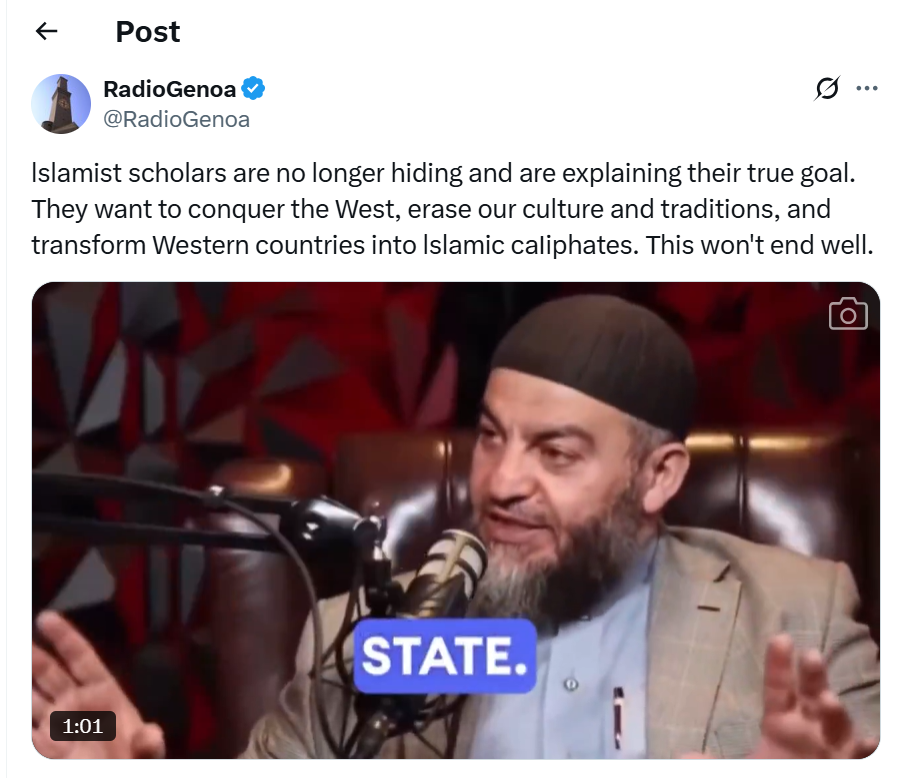
This rhetoric becomes especially alarming when paired with language that seeks to "erase" existing Western culture, traditions, or institutions. Whether through demographic shifts, aggressive proselytizing, or ideological influence in education and politics, their goal, as stated, is not integration but domination. These calls for transformation directly contradict the values of pluralism, secular governance, and equal rights that form the foundation of Western democracies. For many observers, the threat isn't just hypothetical; it raises practical questions about national security, social cohesion, and the resilience of Western cultural identity in the face of ideological opposition.
 However, it is crucial to distinguish between radical Islamist movements and the vast majority of Muslims who practice their faith peacefully and support democratic values. Equating an entire religion with the actions or beliefs of extremists risks fostering division, alienating allies, and undermining efforts to counter radicalization. The real challenge lies in confronting dangerous ideologies without resorting to blanket prejudice—through legal means, community vigilance, and strong civic education—while reinforcing the very freedoms that extremist voices seek to dismantle. Western societies must remain firm in defending their values, but also precise in identifying the true sources of ideological threats.
However, it is crucial to distinguish between radical Islamist movements and the vast majority of Muslims who practice their faith peacefully and support democratic values. Equating an entire religion with the actions or beliefs of extremists risks fostering division, alienating allies, and undermining efforts to counter radicalization. The real challenge lies in confronting dangerous ideologies without resorting to blanket prejudice—through legal means, community vigilance, and strong civic education—while reinforcing the very freedoms that extremist voices seek to dismantle. Western societies must remain firm in defending their values, but also precise in identifying the true sources of ideological threats.




 click and follow Indiaherald WhatsApp channel
click and follow Indiaherald WhatsApp channel